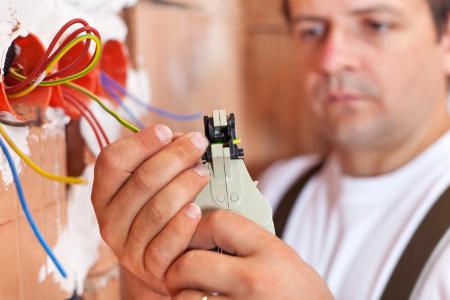Benefits To Replacing Your Old Aluminum Wiring With Copper

Aluminum wiring in homes has a fairly interesting and slightly controversial history. We have a good number of customers ask us whether their old aluminum wiring is safe, and if it should be replaced. While the simple answer is yes, your old aluminum wiring is safe as long as it is maintained and looked after carefully, the simple fact of the matter is that copper wiring will ultimately serve your home better than aluminum wiring ever could for a number of reasons. If there are no obvious electrical problems in your home, you might be able to put off upgrading for a while, but because the problems associated with aluminum wiring will only continue to develop indefinitely, it is not really a question of whether or not you will need to upgrade, but how urgently you need to do so. To help you with the decision of when you should get your old aluminum wiring replaced with copper, we have included some information that you may find helpful about the differences between the two. let S & S Electric, LLC Provide a little info.
Conductivity
Aluminum wiring has a volume conductivity of 38.2% less than that of copper wiring, which basically means that aluminum wiring can’t handle as much electricity as a copper wire. The electrical industry did make an adjustment to the wiring knowing about this difference in conductivity. By increasing the size of the aluminum wiring by one gauge, it would allow for the needed possible current to travel through the wire. This basically means that the electrical companies just used a bigger aluminum wire to make up for the fact that it didn’t conduct as well as copper.
Durability
Aluminum wiring is less dense than copper wiring, and thus less durable and less flexible. If an electrician doesn’t have the right skill and doesn’t take great care when twisting or bending the aluminum wiring, the aluminum conductor inside of the insulation can break. In addition, when twisting the conductor down on an attachment screw, there is the possibility of splitting the conductor which can lead to arcing and possible electrical fires over time.
Melting
If any kind of overheating is applied to aluminum wiring, it can permanently and dramatically affect the conductor. Aluminum melts at a much lower temperature and faster rate than copper, and transforms to a molten liquid metal quite easily, which can then easily ignite combustible material if it is too close.
Corrosion
Aluminum is more subject to corrosion and weather than copper is as well. Over an extended period of time, aluminum wiring will scale over with corrosion and creep its way between any connection between the wiring and any other different metal. In addition, whereas copper wiring corrodes to a green color, this corrosion doesn’t actually impede its conductive ability, whereas the white corrosion on aluminum wiring will do so.
Temperature
Aluminum wiring will also change density a lot when exposed to hot and cold temperatures. This flattens the connection of any termination of an aluminum electrical connection. This means that its connections will become loose over time and will have to be tightened by an professional Fairfax electrician.
or fill our online request form.If you are looking for a professional electrician to fix your aluminum wiring or to upgrade it with new copper wiring, give us a call today at 888-922-9473
Or Fill Out Our Quick Form!